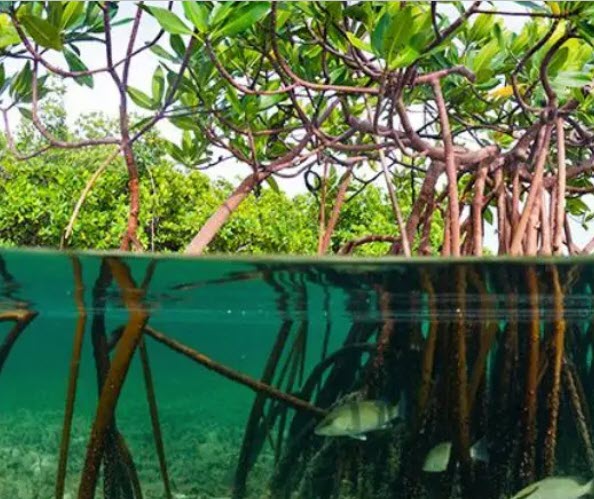
Why are Mangroves Important?
COEGA supports mangroves and other ocean environmental charities, through 1% giving of our revenues from online sales. Here's why mangroves are important, and how they help our oceans;
"Mangroves are important for supporting people as well as other animals, providing food security and income for millions worldwide. Over a third of small-scale fishers in countries with mangroves depend on these ecosystems for their livelihoods.
Mangroves also act as a first line of defence against erosion, storm surges and tsunamis, improving the resilience of vulnerable coastal communities in the face of climate change. They’re believed to reduce the flood risk to more than 15 million people and prevent more than £57 billion in property damages every year.
Through our tie up with VirtueImpact.com , COEGA are successfully:
Offsetting Ocean Bound Plastic; plastic pollution in our waters cause a grave threat to our marine life and its ecosystems. We have recovered 257 kilograms of ocean bound plastic since August 2023.
Restoring Coral Reefs; coral reefs are a vital part of our marine ecosystem. By replanting coral reef fragments, we are helping to restore the coral reefs in our oceans one piece at a time and help reverse the damage.
Regenerating Kelp Forests; kelp forests provide food & shelter for various marine life and are very important for sustaining the biodiversity of the oceans. Kelp forests are now under threat from pollution, changing climate and other external threats. We are proud to say that we have joined the cause for rebuilding these ecosystems.
Meanwhile, mangrove swamps are up to four times more effective than terrestrial forests at mitigating the effects of climate change by absorbing carbon dioxide from the atmosphere and locking it away in their roots and soils.
Yet despite the enormous benefits of mangrove forests for people, wildlife and the planet, these ecosystems are seriously at risk. Two thirds (67%) of the world’s mangrove habitat has been lost or degraded, while more than one in six species found in mangrove swamps are heading for extinction."







Leave a comment
This site is protected by hCaptcha and the hCaptcha Privacy Policy and Terms of Service apply.